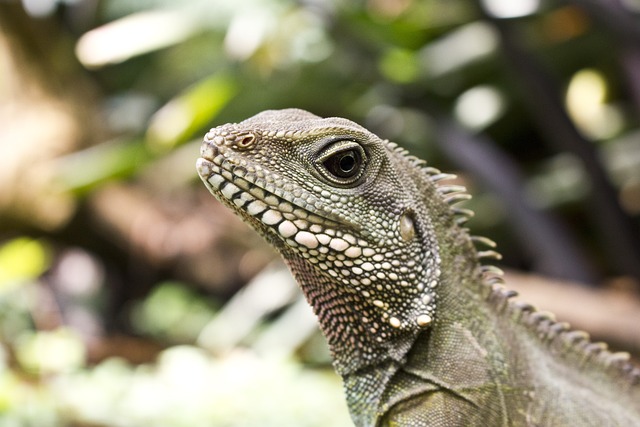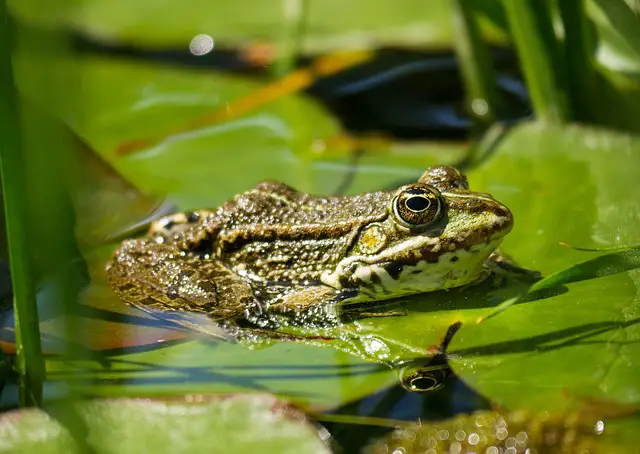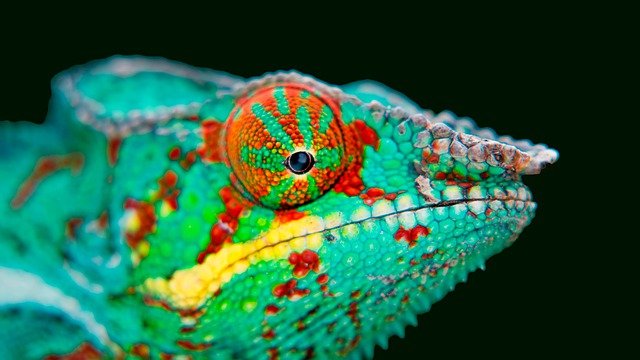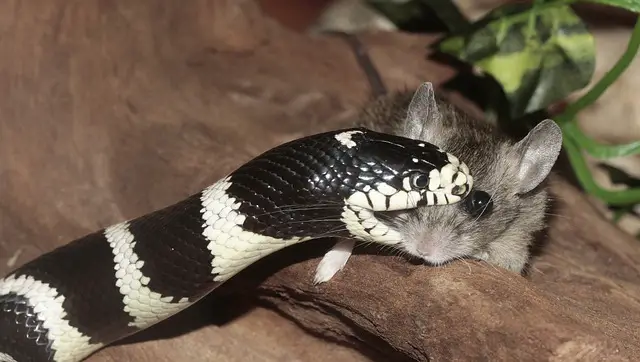Chinese water dragons can go for several days without eating, but it’s not recommended to starve them for long periods.
As with any animal, providing them with a healthy and balanced diet is essential to ensure their overall health and well-being.
In general, Chinese water dragons should be fed every 1-2 days, with a diet consisting of various insects, fruits, and vegetables.
It’s essential to monitor their food intake and adjust their diet to prevent obesity or malnutrition.
The answer to this question is essential for owners to know to ensure the health and well-being of their pets.
Chinese water dragons are omnivorous, meaning they eat both plants and animals. In the wild, they feed on various insects, small mammals, and vegetation.
However, in captivity, their diet is often limited to insects, small rodents, and commercial food pellets. Owners must provide a balanced diet for their water dragons to ensure they receive all the necessary nutrients. gons
Feeding Habits of Chinese Water Dragons
Chinese water dragons are omnivorous reptiles that require a varied diet to maintain their health. They feed on insects, small mammals, fish, and vegetation in the wild.
In captivity, they can be fed a diet of crickets, mealworms, waxworms, pinkie mice, and leafy greens.
Feeding adult Chinese water dragons every other day is recommended, while juveniles should be fed daily.
Providing a balanced diet that includes both animal and plant matter is essential. Insects should be dusted with calcium and vitamin D3 supplements before feeding to ensure proper bone health.
Chinese water dragons are known to be picky eaters and may refuse to eat certain foods. It is essential to offer a variety of food items to ensure they get the nutrients they need.
If a Chinese water dragon goes without eating for an extended period, it can lead to health issues such as weight loss and malnutrition.
It is also essential to provide proper hydration for Chinese water dragons. They require a shallow water dish for soaking, drinking, and misting to maintain humidity levels in their enclosure.
A lack of hydration can also lead to health issues such as dehydration and kidney problems.
Providing a balanced and varied diet for Chinese water dragons is essential to maintain their health and well-being.
Dietary Requirements
Chinese water dragons are omnivores, meaning they eat various foods, including insects, small mammals, fish, and vegetables. In the wild, they feed on a wide range of prey, such as crickets, mealworms, waxworms, earthworms, rodents, fish, and even small birds.
In captivity, providing a balanced diet that meets their nutritional needs is important. A diet deficient in essential nutrients can lead to health problems, such as metabolic bone disease, a common condition in captive reptiles.
Here are some dietary requirements to keep in mind when feeding Chinese water dragons:
- Protein: Chinese water dragons require a high-protein diet, with insects and small mammals making up a significant portion of their diet. Good protein sources include crickets, mealworms, waxworms, pinkie mice, and small rats.
- Calcium: Calcium is essential for healthy bone growth and development. Chinese water dragons require a calcium-to-phosphorus ratio of 2:1 in their diet. Good sources of calcium include dark leafy greens, such as collard greens and kale, as well as calcium supplements.
- Vitamins and minerals: Chinese water dragons require a variety of vitamins and minerals, such as vitamin D3, which is essential for calcium absorption. Good sources of vitamins and minerals include fruits and vegetables, such as carrots, sweet potatoes, mangoes, and vitamin and mineral supplements.
It is important to note that Chinese water dragons can go without food for several days or even weeks, especially during the winter when they enter a period of reduced activity.
However, it is not recommended to starve them for extended periods, as this can lead to health problems.
Effects of Starvation
When Chinese water dragons are not fed properly, they can experience various negative effects. These effects can vary depending on the duration of the starvation period and the age and health of the dragon.
One of the primary effects of starvation is weight loss. Chinese water dragons typically lose weight quickly when they are not eating regularly.
This can be especially dangerous for juveniles and sick or injured dragons, as they may not have enough fat reserves to sustain them during periods of food scarcity.
In addition to weight loss, other physical effects of starvation can include weakened immune systems, decreased muscle mass, and reduced bone density.
These effects can make the dragon more susceptible to illness and injury and make it more difficult to recover from these conditions.
Starvation can also have negative effects on a dragon’s behavior. When hungry, they may become more aggressive or irritable and more likely to lash out or bite.
They may also become lethargic or inactive as their bodies conserve energy in response to the lack of food.
Overall, it is essential to ensure that Chinese water dragons are fed a balanced and nutritious diet regularly to prevent the negative effects of starvation.
Signs of Malnutrition
Chinese water dragons can go without food for extended periods, but monitoring their health and looking out for signs of malnutrition is essential. Some of the signs of malnutrition in Chinese water dragons include:
- Weight loss: If a Chinese water dragon is not eating enough, it may lose weight. You can monitor your dragon’s weight by regularly weighing it on a scale. A healthy adult Chinese water dragon should weigh between 1 and 2 pounds.
- Lethargy: A malnourished Chinese water dragon may become lethargic and less active than usual. It may spend more time basking and less time exploring its enclosure.
- Sunken eyes: If a Chinese water dragon is dehydrated or malnourished, its eyes may appear sunken and dull.
- Dull skin: A healthy Chinese water dragon should have bright, vibrant skin. The skin’s dullness or dry may be a sign of malnutrition.
- Weakness: A malnourished Chinese water dragon may become weak and have difficulty moving around.
If you notice any of these signs in your Chinese water dragon, it is essential to take action to address the issue. Providing a varied and nutritious diet, ensuring proper hydration, and consulting with a veterinarian may be necessary to improve your dragon’s health.
Emergency Care for Malnourished Dragons
If a Chinese water dragon has gone without eating for an extended period, it may become malnourished and require emergency care. Malnourishment can lead to various health issues, including weakened immune systems, stunted growth, and metabolic bone disease.
The following steps can be taken to provide emergency care for a malnourished Chinese water dragon:
- Rehydration: Malnourished dragons are often dehydrated, so watering them is crucial. Offer water in small amounts frequently throughout the day. If the dragon is not drinking independently, it may need to be given fluids subcutaneously or intravenously by a veterinarian.
- Feeding: When a malnourished dragon is ready to eat, offer small amounts of food frequently throughout the day. Start with easily digestible foods such as insects and small pieces of fruit. Gradually increase the amount and variety of food offered as the dragon’s appetite improves.
- Supplements: Malnourished dragons may require supplements to help them recover. Calcium and vitamin D3 supplements are essential for preventing metabolic bone disease. A veterinarian can recommend the appropriate supplements and dosages for the dragon’s specific needs.
- Monitoring: Keep a close eye on the dragon’s behavior and health during recovery. See veterinary care immediately if the dragon shows any signs of distress, such as lethargy or difficulty breathing.
It is important to note that malnourishment can long-term affect a Chinese water dragon’s health. Prevention is key, so proper nutrition and care are essential to ensure the dragon stays healthy and happy.
Preventive Measures
To prevent Chinese water dragons from going too long without eating, there are several measures that owners can take to ensure their pets remain healthy.
Firstly, it is essential to establish and stick to a feeding routine. Chinese water dragons should be fed daily or every other day at the very least.
Owners should also ensure that their pets eat enough and adjust their feeding schedule accordingly.
Overfeeding can also be a problem, so monitoring the amount of food given to the dragon is essential.
Secondly, it is essential to provide a suitable environment for the dragon. A tank with adequate space, temperature, and lighting is necessary. The tank should also be cleaned regularly to prevent the buildup of bacteria and other harmful substances.
Thirdly, owners should monitor their dragon’s behavior and health closely. If a dragon is refusing to eat, it could be a sign of an underlying health problem. In such cases, owners should consult a veterinarian as soon as possible.
Lastly, owners should be aware of their dragons’ dehydration signs. If a dragon is not drinking enough water, it can lead to serious health problems. Owners should ensure that their dragon has access to clean water and monitor their water intake closely.
By following these preventive measures, owners can ensure that their Chinese water dragons remain healthy and well-fed and avoid the potential problems that can arise from prolonged periods without food.
Conclusion
In conclusion, Chinese water dragons can go without eating for a significant amount of time. However, it is essential to note that they should not be deprived of food for extended periods as it can lead to serious health issues.
Based on research and expert opinions, Chinese water dragons can survive for up to two months without food. This is because they can slow down their metabolism to conserve energy. However, feeding them every two to three days is recommended to maintain their health and well-being.
It is also essential to ensure that Chinese water dragons have a balanced diet that includes a variety of insects, fruits, and vegetables. Feeding them a diet too high in protein can lead to liver and kidney problems. Additionally, providing them with a proper habitat, including a basking area, UVB lighting, and a water source, is crucial for their overall health.
Overall, Chinese water dragons are hardy animals that can survive without food for some time. However, providing them with proper care and nutrition ensures longevity and well-being.
Frequently Asked Questions
What is the typical feeding schedule for Chinese water dragons?
Chinese water dragons are omnivores and require a balanced animal and plant matter diet. Younger dragons should be fed daily, while adults can be fed every other day. It is essential to provide various food options to ensure proper nutrition.
How long can Chinese water dragons go without food?
Chinese water dragons can go up to two weeks without food, but it is not recommended to withhold food for this long. It is best to feed them regularly to maintain their health.
What are some signs that a Chinese water dragon is not eating enough?
Signs that a Chinese water dragon is not eating enough include weight loss, lethargy, and decreased activity level. It is essential to monitor their eating habits and seek veterinary care if any concerns arise.
How do I know if my Chinese water dragon is overweight or underweight?
A healthy Chinese water dragon should have a slender body with a visible waistline. If their body appears round or bulging, they may be overweight. If their body appears thin or bony, they may be underweight. Consult with a veterinarian if you have concerns about your dragon’s weight.
What are some common live food options for Chinese water dragons?
Common live food options for Chinese water dragons include crickets, mealworms, waxworms, and roaches. It is essential to gut-load these insects with nutritious food before feeding them to your dragon.
Do Chinese water dragons require supplements or vitamins?
Chinese water dragons may require calcium and vitamin D3 supplements to maintain bone health. Consult with a veterinarian to determine the appropriate supplementation for your dragon.








